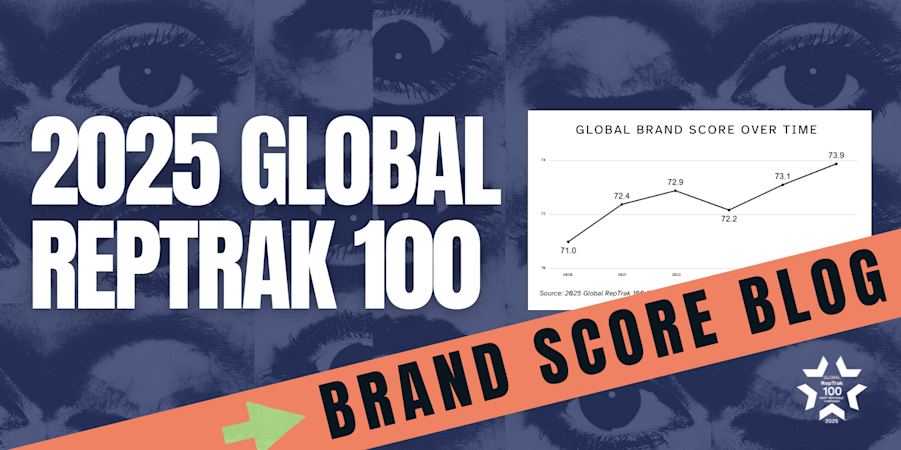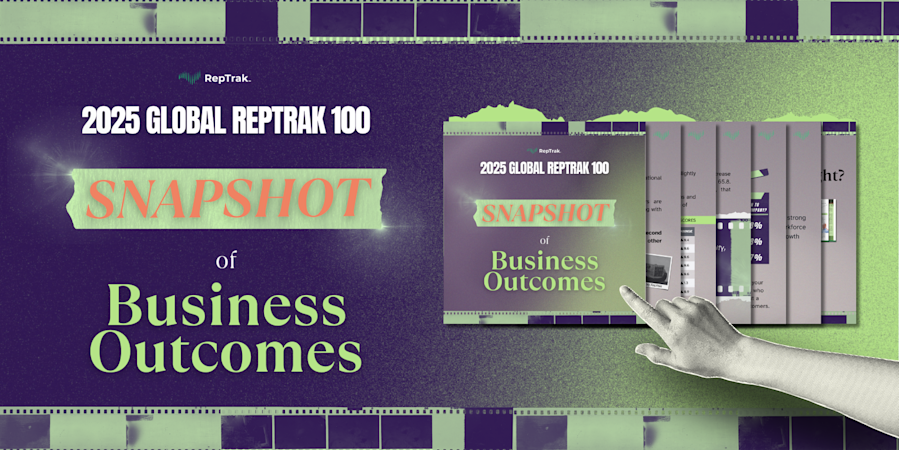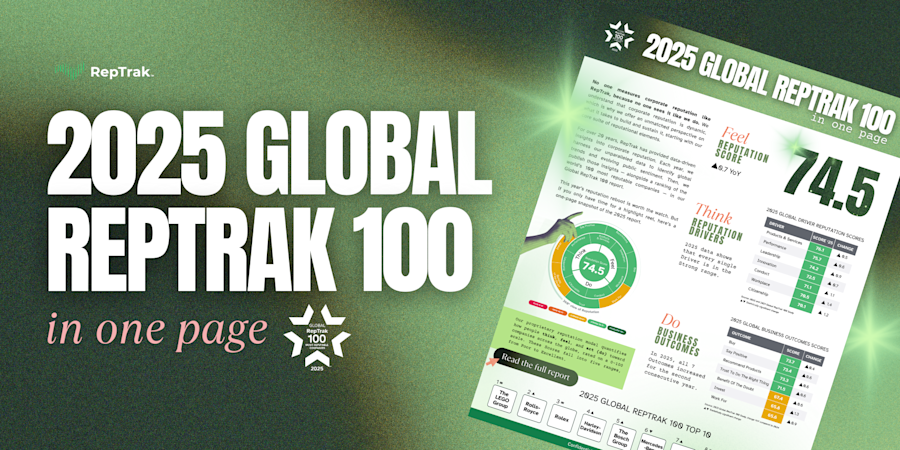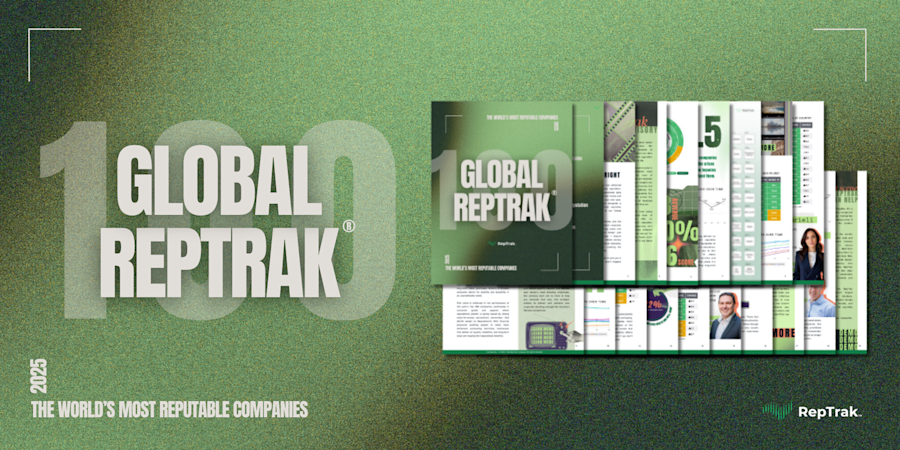Leading and Lagging: How the 100 Most Reputable Companies are (and aren’t) meeting environmental expectations
Corporate Responsibility/ESG28 Apr, 2021
Time is running out for climate action — and for businesses to contribute to the solution.
As the Leaders’ Summit on Climate concludes and Earth Day passes, it is a race against time to aggressively reduce greenhouse gas emissions, reduce plastic, and protect marine ecosystems. Governments are deepening their national strategies and targets, while investor expectations are mounting for businesses to deliver against their climate pledges. This isn’t just a call for government action. The public is specifically looking for corporations to step up.
And the public is paying attention.
Corporate environmental promises aren’t necessarily new, but the expectation for companies to take accountability for their environmental impact and take action is growing. The making and breaking of these promises influences public perception, boosting and damaging brand power and reputation.
We turned to our 2021 Global RepTrak 100 Most Reputable Companies to study the power of environmental action on reputation and perception. RepTrak’s annual study is the definitive ranking of corporate reputation for the world’s leading companies, showcasing how people feel, think, and act towards brands – all based on RepTrak’s proprietary reputation analytics and data.
Read the full Global RepTrak 100 report here.
The Top 100 are determined by 7 key drivers: Performance, Products/Services, Leadership, Citizenship, Governance, Workplace, and Innovation.
RepTrak also measures an ESG (Environmental – Social –Governance) Score, reflecting public perception of performance against 17 factors. These include environmental considerations like: acts responsibly to protect the environment, reduces its environmental footprint, manages energy efficiently, and is a responsible user of natural resources, among others.
In the sink-or-swim year of 2020, the Top 100 rose to the occasion and achieved a highest ever score of 74.9.
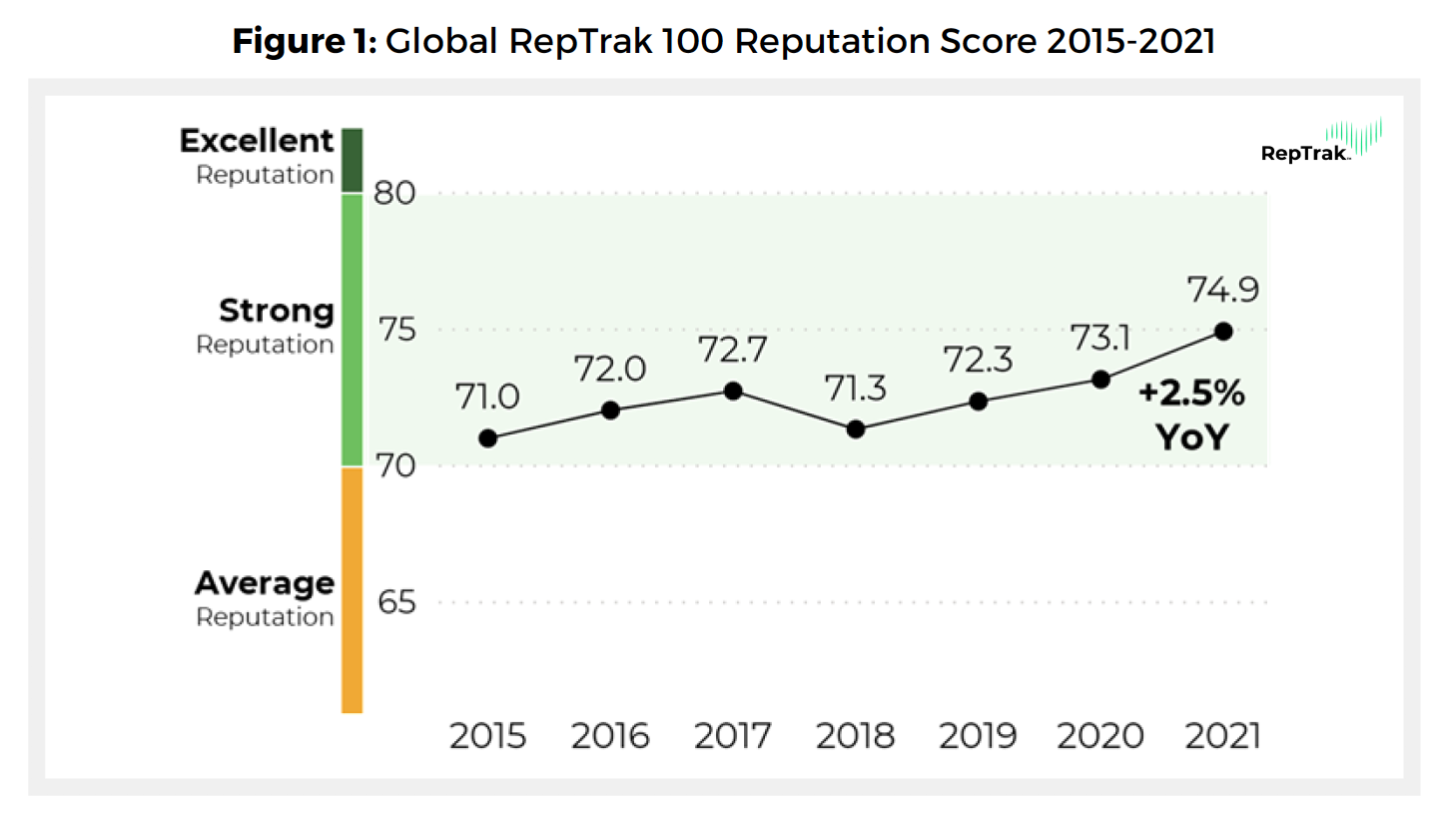
Although RepTrak’s Top 100 are exemplary in their key reputation drivers, many receive average marks across the board for “acting responsibly to protect the environment.”
In fact, ESG Scores (Environmental - Social - Governance) were lower than the average Reputation Scores, with significant variation across the individual Environmental, Social, and Governance Scores. Globally, the overall ESG Score was an “average” 69.5, with Social receiving the highest perception score, followed by Governance and then Environment.
RepTrak data reveals a low ESG score results in a 20% willingness to buy, while a high ESG score results in a 60% willingness.
This leaves room for improvement.
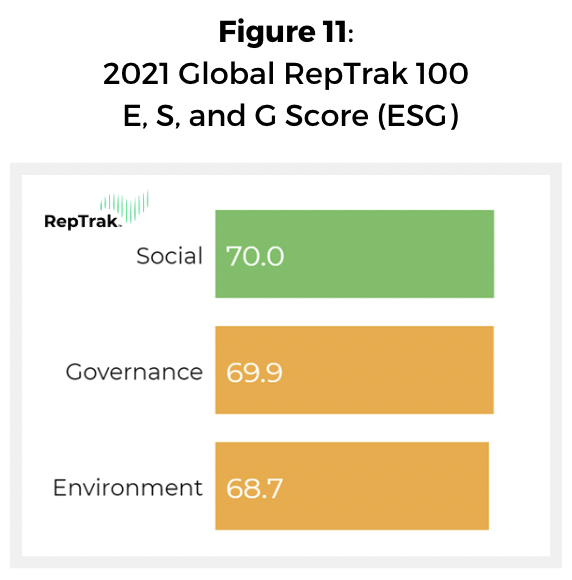
In July 2020, BlackRock Inc. issued a report that called out 244 companies for failing to prepare their operations for climate change or inform their investors of the risks.
And the Top 100 are working on it. Sixty percent of the Top 100 have established Science-Based Targets (SBTi) for their carbon emissions reduction strategies, while 1 out of 3 have set a target to use 100% Renewable Energy.
More than one-third have communicated a goal of Net Zero Emissions by 2050 (if not sooner), with many signing onto the Climate Pledge to achieve carbon neutrality by 2040. While this is higher than the estimated 20% of the Fortune 2000 who have set Net Zero Emissions targets, many of these commitments have been made within the past year and may not be known to the general public.
Some Top 100 companies have even more ambitious pledges, including:
#10 Microsoft: Net Zero by 2030, with an additional goal of removing all carbon emitted since it was founded in 1975
#36 IKEA: ”Climate positive” by 2030
#46 Apple: Net Zero by 2030
#92 Amazon: co-founded The Climate Pledge in 2019, aiming to be Net Zero by 2040 and now over 100 companies have signed on (e.g., #50 Colgate-Palmolive, #26 Visa).
Environmental perception is just one factor to influence reputation, but as the environmental conversation heats up (literally), its importance to reputation will only grow.
And consumers are noticing what is – and isn’t – said about environmental efforts.
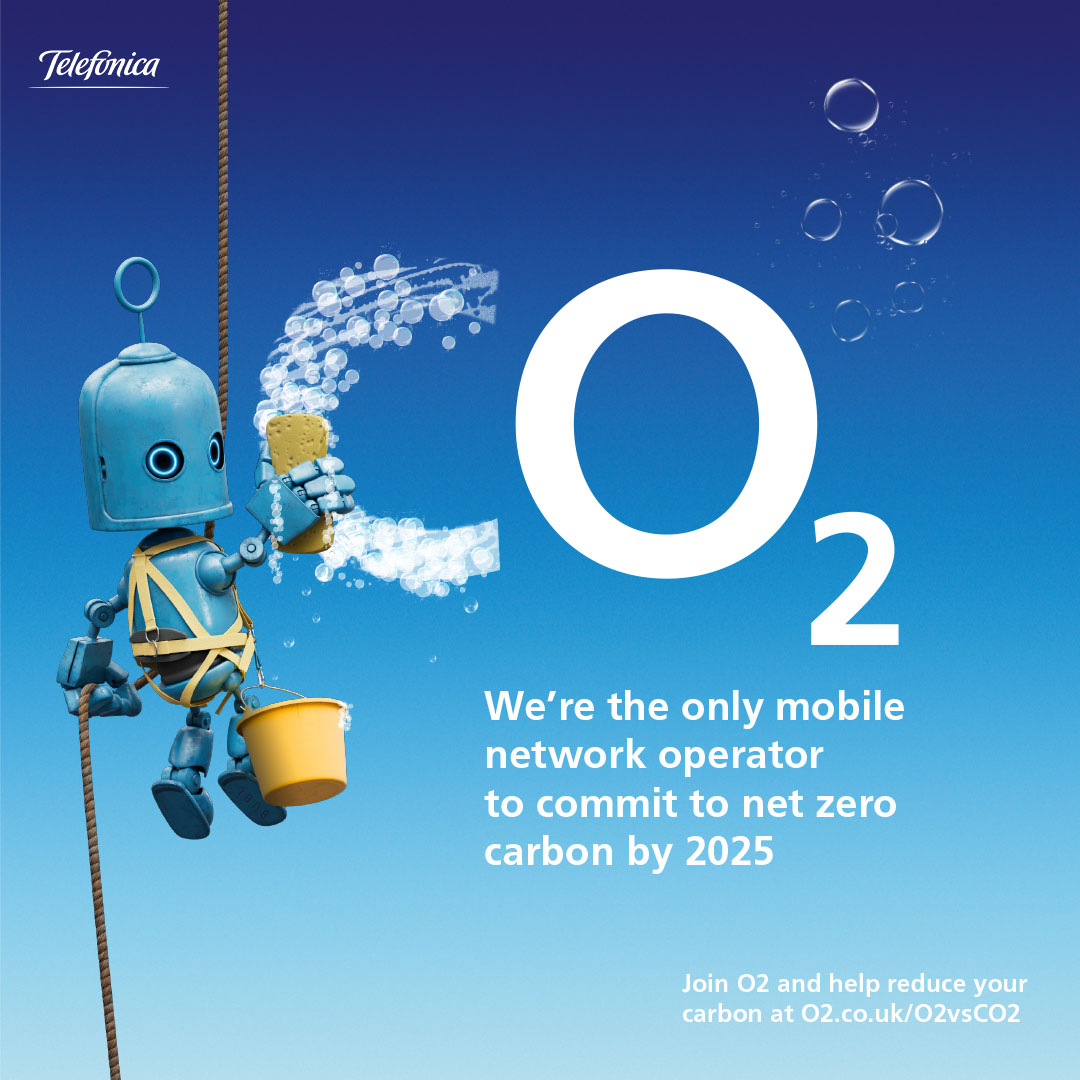
O2, a UK-based telecommunications company, recently launched their O2 vs CO2 campaign. This proactive multi-channel campaign communicates their initiative to buy 100% renewable electricity to power their network. The desire to engage a mass-audience and spread awareness of O2’s environmental efforts was influenced, in part, by their RepTrak insights.
O2 is the only mobile network operator to publicly commit to net zero carbon by 2025, and the only network to receive the highest certification for carbon reduction in their supply chain.
Dedicated to listening to their audience and community, RepTrak's data highlighted that while the brand has strong environmental credentials, O2’s sustainability commitments were not widely known or understood. These insights encouraged O2 to build a creative and impactful campaign to raise awareness of their environmental track record and ambitious Net Zero commitments, while also strengthening citizenship and ESG perceptions amongst key audiences.
As corporate expectations rise, O2 has taken a proactive approach, demonstrating their commitment to their customers and to tackling climate change – and then communicating it deliberately.
Even for the Top 100, the commitment to sustainability initiatives is very loud and shiny, with updates and setbacks quiet. Advertising and communications are crucial in maintaining transparency, accountability, and positively building reputation.
As companies tackle their environmental promises, they won’t just have to make and accomplish serious environmental goals – they’ll have to communicate their efforts and results very clearly.
Curious about how the public perceives your ESG efforts? Request a demo.


